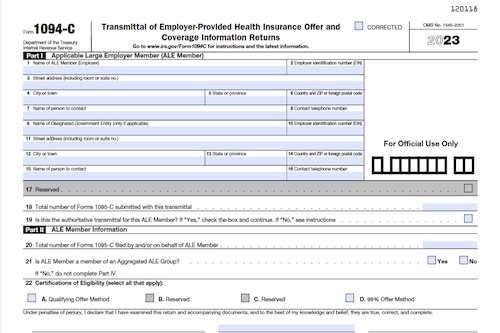Enter Form 8835 to claim the renewable electricity production credit for qualified energy resources and qualified facilities eligible for the credit in the US or US territories. Recapture of the credit may be required if a grant is paid under the American Recovery and Reinvestment Act of 2009. Read on for more details.
What is Form 8835?
Form 8835 is a US tax form used to claim the renewable electricity production credit, which is allowed only for the sale of US- or US territory-generated electricity from qualified energy resources. Generally, partnerships and S corporations are required to submit this form, but other taxpayers whose sole source of credit is a partnership, S corporation, estate, trust or cooperative can report the credit directly on Form 3800. Exceptions include estates or trusts with allocated credit to beneficiaries, or cooperatives with allocated credit to patrons. There is an election to treat qualified property as energy property eligible for the investment credit instead of the production credit. However, no credits are allowed for grants paid under the American Recovery and Reinvestment Act of 2009. The credit rate for calendar year 2022 is 0.3 cents per kilowatt-hour of electricity (for qualified facilities placed in service after 2021, the rate is 2.75 cents per kWh), and 1.3 cents per kWh for open-loop biomass, landfill gas, trash, hydropower, and marine and hydrokinetic renewables (1.25 cents per kWh for qualified facilities placed in service after 2021). Facility and cost requirements apply, and the credit is proportionately phased out once the reference price exceeds the adjusted threshold price.
IRS Form 8835 – Who Needs to Fill It Out?
Partnerships and S corporations must file IRS Form 8835 to claim the renewable electricity production credit. All other entities are generally not required to complete or file this form if their only source for this credit is a partnership, S corporation, estate, trust, or cooperative. However, estates or trusts with source credits allocated to beneficiaries and cooperatives with credits allocated to patrons must file. Additionally, a taxpayer can elect to treat a qualified facility as energy property and claim a separate investment credit on Form 3468. The credit for electricity produced from qualified energy resources is proportionately phased out when the reference price exceeds the 8-cent threshold price, and is adjusted for inflation each year. This form is also necessary to coordinate with Department of Treasury grants for specified energy property, and to properly figure the credit.
Step-by-Step: Form 8835 Instructions For Filling Out the Document
Filling out Form 8835 will allow you to claim the renewable electricity production credit available for the sale of electricity produced in the United States or U.S. territories from qualified energy resources. Generally, partnerships and S corporations will need to file this form in order to claim the credit, while others may be able to report the credit directly on Form 3800 – with the exceptions of estates and trusts, or cooperatives (for which beneficiaries or patrons may receive the credit respectively). Taxpayers can also make an irrevocable election to treat qualified facility property as energy property, eligible for the investment credit reported on Form 3468. However, no production or investment credit applies for property for which a Department of Treasury section 1603 grant is paid. The allowable credit rate, reference price, and threshold price vary with the particular type of qualified facility, and certain required inquiries, reductions, and exceptions apply – including a credit reduction for prices beyond the threshold, a five percent safe harbor to begin construction, and section 1603 grant eligibility criteria.
Below, we present a table that will help you understand how to fill out Form 8835.
| Form 8835 Information | Details |
|---|---|
| Eligibility | Claim the renewable electricity production credit for qualified energy resources. |
| Filers | Partnerships and S corporations must file Form 8835 to claim the credit. |
| Alternative Filing | Estates, trusts, and cooperatives may report the credit on Form 3800. |
| Qualified Facility Property | Can be treated as energy property eligible for investment credit on Form 3468. |
| No Credit for Section 1603 Grant | No production or investment credit for property with a section 1603 grant. |
| Credit Rates | Vary based on the type of qualified facility. |
| Threshold Price | Threshold price determines credit eligibility. |
| Safe Harbor | Five percent safe harbor for construction commencement. |
| Section 1603 Grant Eligibility | Criteria for eligibility for section 1603 grants. |
Do You Need to File Form 8835 Each Year?
Yes. Partnerships and S corporations must file this form to claim the renewable electricity production credit every tax year if they have claimed or are claiming the credit for the sale of electricity produced in the United States or U.S. territories from qualified energy resources at a qualified facility. All others are generally not required to complete or file this form if their only source for this credit is a partnership, S corporation, estate, trust, or cooperative. Instead, they can report this credit directly on Form 3800. Exceptions apply for estates, trusts, and cooperatives, however, which are outlined in the form’s official instructions.
Download the official IRS Form 8835 PDF
On the official IRS website, you will find a link to download Form 8835. However, to make it easier for you, we are providing the link in our article, which comes directly from the official irs.gov website! Click to download: Form 8835
Sources:




